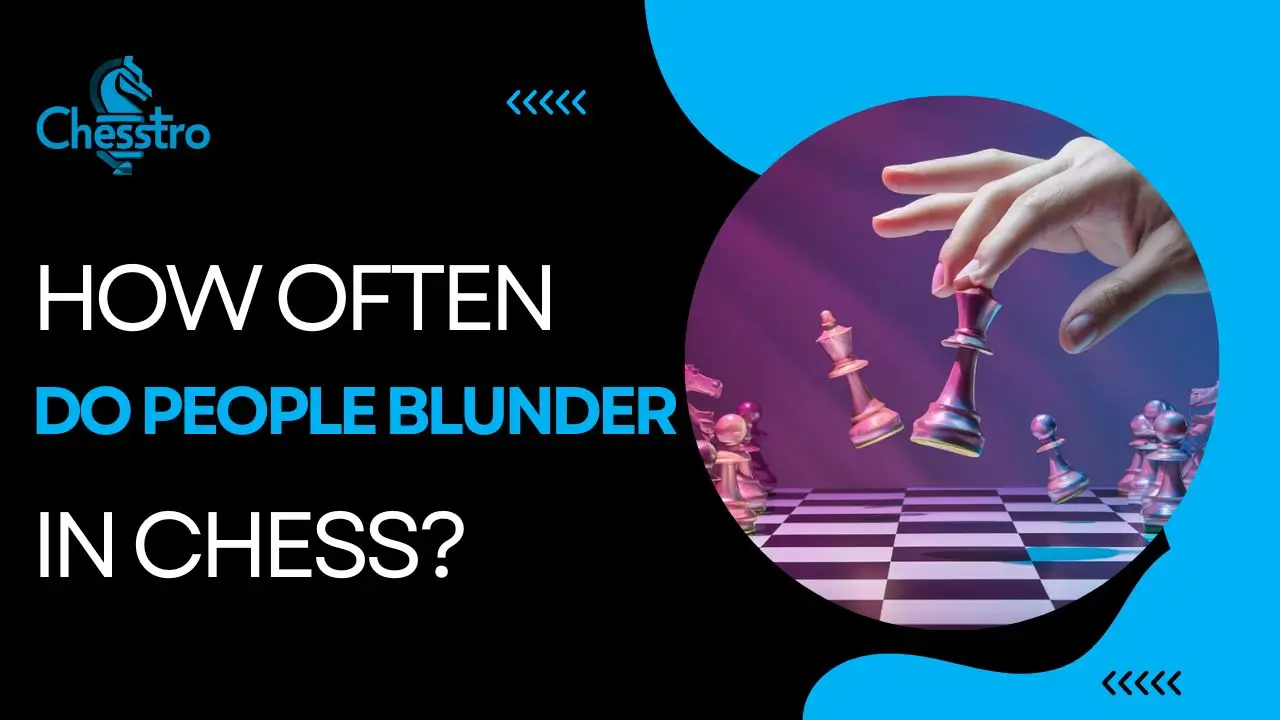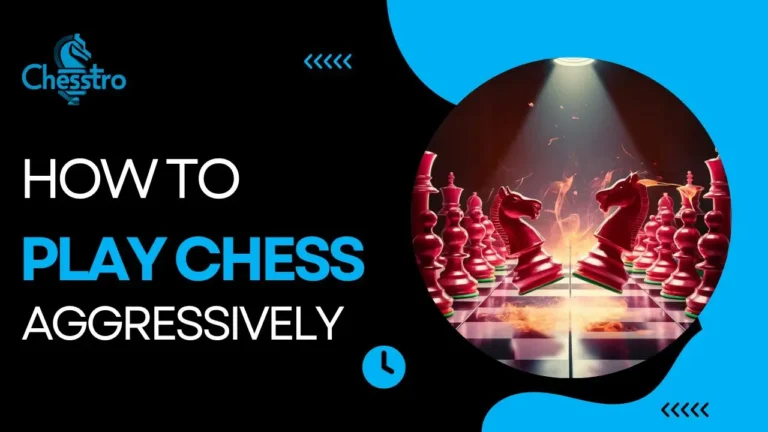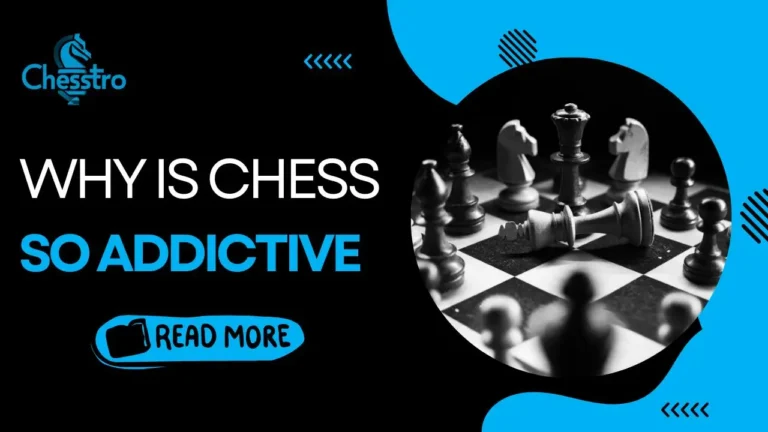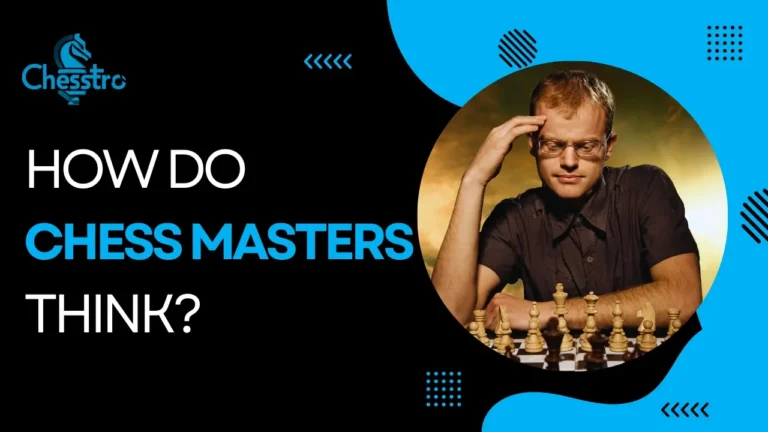How often do people blunder in chess? A Realistic Insight
How often do people blunder in chess? Everyone makes mistakes, and chess players are no exception. In the intricate world of chess, these slip-ups are known as “blunders .”From beginners to grandmasters, no one is safe from the occasional error. But how often do these blunders happen? What factors contribute to their frequency?
For your Information!
Even grandmasters are not immune to blunders. In 1959, Bobby Fischer, one of the greatest players in history, blundered his queen in a blitz game against Samuel Reshevsky.
Understanding this aspect can help players better assess their performances and strategies. In this article, we’ll explore the fascinating dynamics of blunders in chess, from their frequency to the reasons behind them. Whether you’re a chess enthusiast or a curious reader, this guide will enlighten you about this intriguing aspect of the game.
| Aspect | Description |
|---|---|
| Frequency of Blunders in Chess | Blunders are common in chess, occurring across all skill levels. Factors such as concentration, fatigue, and board complexity influence their frequency. |
| Rate of Blunders Across Skill Levels | Beginners may commit 8-10 blunders per game, while intermediate players average fewer errors. Grandmasters, despite their skill, might blunder once in 50 games. |
| Blunder Occurrence in Different Game Types | Fast-paced games like blitz or bullet chess witness more blunders due to time pressure. With longer time controls, players have more opportunity to reduce errors. |
| Average Blunder Occurrence Among Enthusiasts | The frequency of blunders varies based on expertise and time control. While beginners make more mistakes, even skilled players are susceptible due to chess’s complexity. |
You can also learn more about Is Chess Hard To Learn
How Frequently Do Chess Players Make Blunders During A Game?
Chess players, regardless of their skill level and experience, are not immune to making blunders during a game.
Blunders are an integral part of the game and occur quite frequently. Even Grandmasters, the highest-ranking players, commit mistakes that can cost them the game.
The frequency of blunders depends on various factors, such as the players’ concentration level, fatigue, and the complexity of the position on the board.
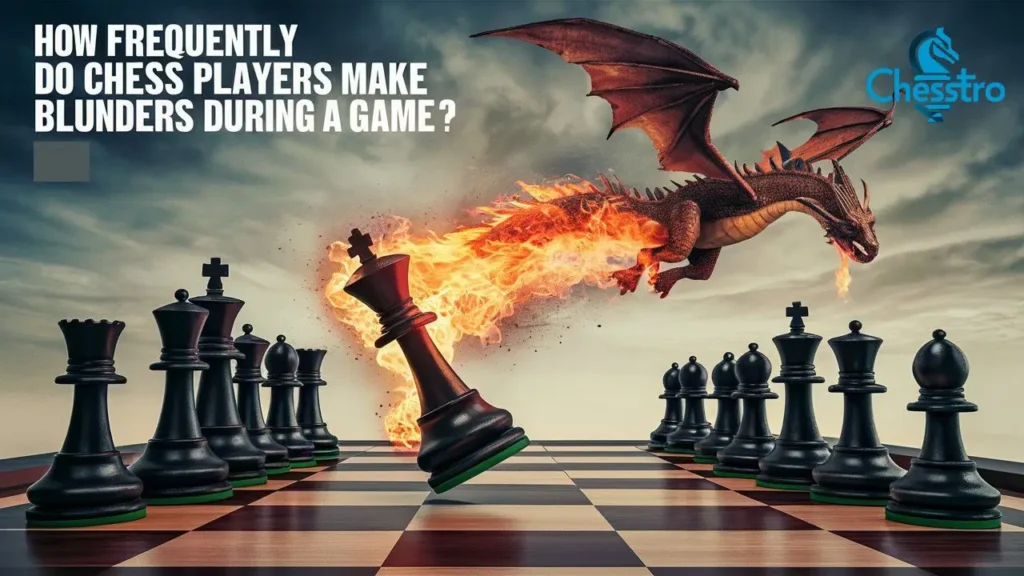
You can also learn more about Does ADHD Affect Chess
In short, it is hard to determine an exact or average number of blunders made during a chess game. However, it is safe to say that even the most seasoned players can make at least a few blunders per game.
This is because chess is an intense and mentally demanding game that requires players to analyze countless possibilities and make crucial decisions under pressure.
Nonetheless, players strive to minimize these errors through careful calculation, strategizing, and constant practice.
You can also learn more about Can Pawns Move Backwards?
What Is The Rate At Which Chess Players Typically Commit Blunders?
In chess, a “blunder” is a big mistake that can change the outcome of the game. How often players blunder depends on their skill level and experience.
Beginners and Casual Players: Players who are new to chess or play it casually tend to make more blunders. For example, players with a rating of below 1000 are likely to commit around 8-10 blunders in a single game. This is because they’re still learning the basic rules and strategies of the game.
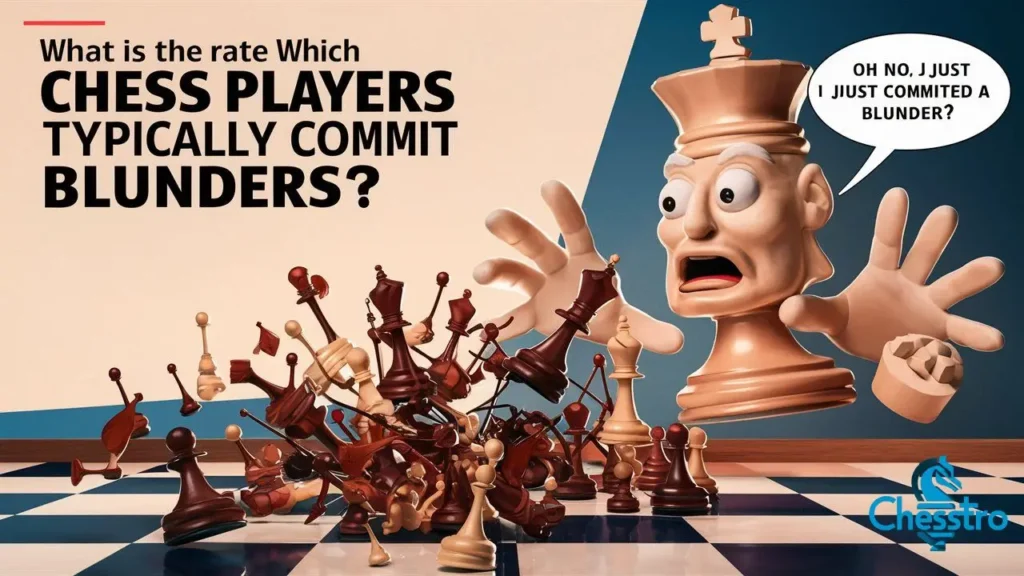
Intermediate Players: Players with a rating between 1800-1900 still make big mistakes, but not as often as players under 1600. It’s suggested that players over 1800 don’t blunder that often, and over 2000 is when blunders become less common in a game.
You can also learn more about Where are the chess hustlers
Professional Players: Even the best players can still make mistakes, but they do so less often because they’ve spent a lot of time practicing and studying different game situations. For instance, a grandmaster might commit a blunder once in 50 games.
Fast-Paced Games: Blunders happen more in fast-paced games, like blitz or bullet chess. In these games, players have less time to think about their moves, which can lead to more mistakes. Remember, even the best players can make blunders. The key is to learn from these mistakes and keep improving your game.
You can also learn more about What is the 20-40-40 rule in Chess?
How Often Do Individuals Make Tactical Errors Or Blunders In Chess?
In chess, everyone can make mistakes, no matter how good they are. These mistakes are called “blunders”. Even the best players can sometimes make a bad move that puts them in a tough spot.
How often this happens can change a lot, depending on how good the player is and how focused they are. People who are new to chess or play for fun usually make more blunders. This is because they have yet to learn all the rules and strategies, and they might not see when they’re in danger.
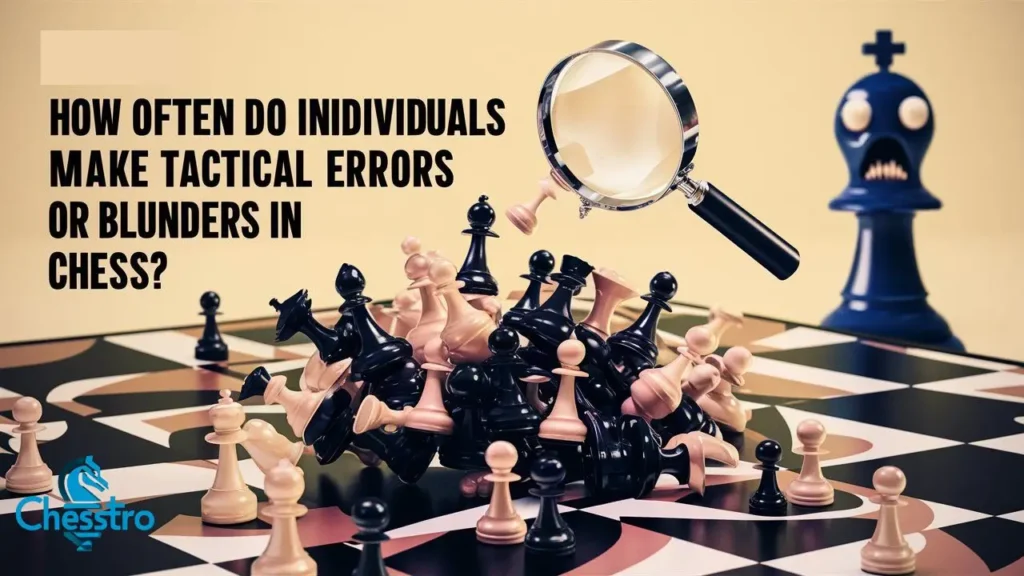
You can also learn more about Why is Blitz chess so popular?
But even the best players in the world, called “grandmasters,” can make blunders. This can happen if they lose focus for a moment, get too confident, or make a wrong calculation. Chess is a tricky game that needs a lot of thought and careful decision-making. So, there’s always a chance to make mistakes.
But the more you play and practice, the better you get at avoiding blunders. You learn from your mistakes and get better at the game.
You can also learn more about Do Chess Books Help?
What Is The Average Occurrence Of Blunders made by chess enthusiasts?
The average occurrence of blunders made by chess enthusiasts can vary greatly depending on several factors.
Firstly, the individual player’s level of expertise and experience plays a significant role. Beginner players are more prone to blunders than advanced players who have honed their skills through practice and study.
The game’s time control can also influence the frequency of errors. In fast-paced blitz or bullet chess, where players have limited time to make moves, blunders are more likely due to the pressure and the need for quick decision-making.
You can also learn more about Do You Have To Say Check In Chess?
On the other hand, with more extended time controls, players have more opportunities to analyze and evaluate their moves carefully, reducing the occurrence of blunders.
Nevertheless, it is essential to note that even skilled chess enthusiasts are not immune to errors. The game’s complexity and intricacy make it inherently prone to mistakes, regardless of a player’s expertise level.
You can also learn more about How do chess hustlers work?
FAQS: How often do people blunder in chess?
Final thoughts: How often do people blunder in chess?
In conclusion, blunders are an inevitable part of chess, occurring at all levels of play. The frequency of blunders depends on various factors, such as the player’s experience, concentration level, and the complexity of the position on the board.
Even skilled players can make mistakes, but with practice and careful analysis, they can minimize these errors. Ultimately, learning from mistakes is crucial in improving one’s game. Chess is a challenging and mentally demanding game, but the thrill of outmaneuvering an opponent and achieving victory makes it all worthwhile.

